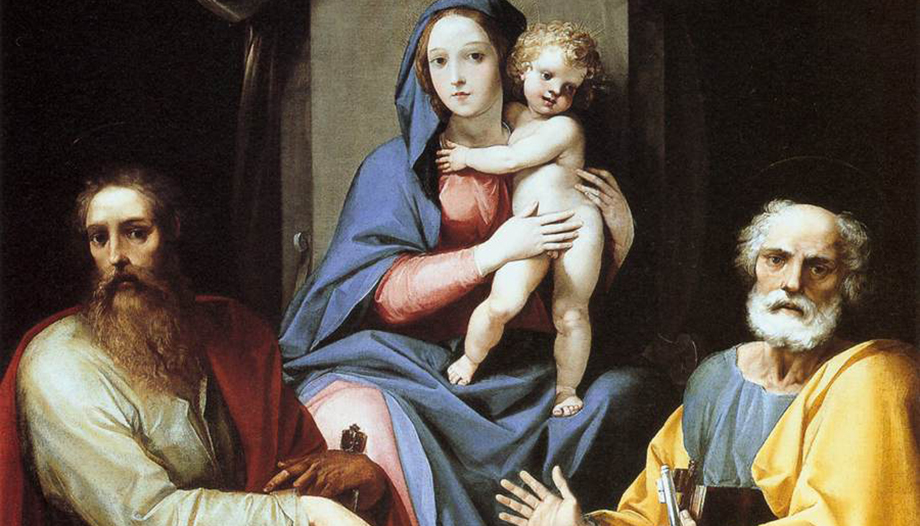Of Peter and Paul we have many references in the Scriptures and many words written by their own hand or transmitted as their own. In these texts, their personalities, qualities and defects, even their sins, and their great diversity as persons are expressed to us.
The story of the call to each one and the tasks entrusted to them by the Lord are very different. Peter met Jesus at the beginning of his ministry, and was immediately invested with the role of foundation stone of the new Church. He met him in a normal way, through the Baptist and his brother Andrew. On his way he experienced his impetuous character, which, full of faith, led him to exclaim: "You are the Christ, the Son of the living God." and is praised by Jesus: "Blessed art thou Simon, son of Jonah.". But when he told her, with lack of faith: "This is never going to happen to you!", opposing the divine plan of the cross and resurrection for our salvation, deserves his reproach: "Depart from me, Satan!". Again it is an impulse of presumption: "I will give my life for you!", he assures shortly before denying him three times.
Paul met him in an extraordinary way, on his way to Damascus, years after his Ascension to heaven. This event changed his life when he was on his way to imprison the first Christians. He goes from the experience of being the one who ordered the stoning of Stephen, to the light in which he understands that he is persecuting Jesus in the Church, which is his body: "I am Jesus, whom you are persecuting!". He knows that he has received his gospel directly from Christ. We read in the letter to the Galatians: "I make known to you, brethren, that the gospel which I have preached to you is not something human; for I did not receive it or learn it from any man, but by the revelation of Jesus Christ."
Enlightened by Christ, he does not run to see the apostles: he withdraws to Arabia, then returns to Damascus, and only after three years goes to Jerusalem to meet Peter and stay with him for fifteen days. Then, fourteen years later, by a revelation, he returns to Jerusalem and exposes to the authorities of the Church the gospel that he preaches, so as not to run in vain. They recognized that Paul had received directly from God the mission to preach the Gospel to the pagans.
If in Peter the institutional dimension of the Church is present from the beginning, with its human limitations, in Paul we see the charismatic dimension and the spirit of prophecy, with its need, from time to time, to verify it with the hierarchical dimension. Guided by his charism and spirit of freedom, Paul is able to correct Peter in front of everyone in Antioch. In the joint celebration of Peter and Paul, it is emphasized that in the Church there is institution and prophecy, and that they have to go together.









